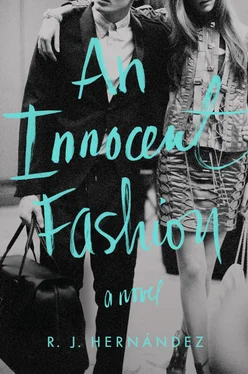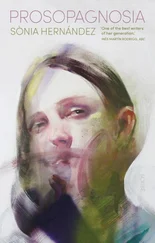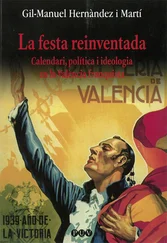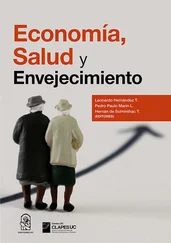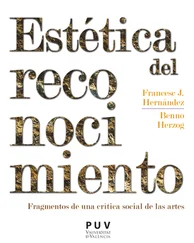Given this streak of romanticized rebellion, it was a surprise to no one that sophomore year, we decided to move off campus.
“Our own gypsy enclave,” Madeline called it. “I’ll pay the rent, and in exchange you can cook me eggs Benedict for breakfast.” (Equating a matter of considerable value like rent to a triviality like eggs Benedict had become a new trend, as Madeline had started suggesting these sort of compensatory clauses to offset my discomfort with her emasculating generosity.)
The street was called Lynwood Place, and although frankly it was as central to campus proper as any of the dormitories, rejecting the institutional safety of Yale property by residing in a quaint little house seemed a convenient act of defiance. Built in the Victorian style, the houses on Lynwood Place were painted in shades of white, pink, and powder blue, delivering in excess the charm required by our aesthetic standards. These dainty dwellings became the closest we had to a maternal influence. Amid a landscape dominated by the patriarchal shadows of a hundred Gothic towers, they resembled a cheerful parade of gingham-aproned housewives, who had marched through the turreted town on a pie-baking crusade only to stop, and stay there, after forming a chatty sisterhood with the oak trees.
Beneath canopying laundry lines of leaves that faithfully turned each year from green to gold, they toted party-hat roofs and sing-along porches, which served as a quaint backdrop for the sharply contrasting indulgences of our lost, but hopeful, generation; night after night of reckless undergraduate blundering, of everyone trying to “find” themselves in creative combinations of sex, sweat, and Sam Adams six-packs. The same echoes could be heard every weekend on Lynwood Place, as everyone yelled, stumbled, busted things up. We were swarms of entitlement embodied, and like all mothers, the houses endured us. They took pity on us, knowing well that while they remained there, semester after semester, trying to catch a breath as they wearily waved their dampened handkerchiefs behind us, we would have it worse when we left their unconditional shelter to enter the real world.
For all our prim and proper proclivities, Madeline and I crashed as thanklessly as any other hell-bent undergraduates through the halls of our splintering house. We were a discerning pair, but young — always so, so young; consequently, our discernment tinged all matters but our own carelessness. We filtered life through the kaleidoscope of a fever dream, determined that through the meaningful affluence of our everyday rituals we should recreate the thrill of some great romantic precedent.
Every morning, amid my racket of pots, pans, and half-scrubbed spatulas, it was the destiny of our kitchen to accumulate a new dimension of filth as my well-intentioned incompetence ensured the spatter of Madeline’s eggs Benedict onto some new surface, ushering in the beginning of another day. We fluttered out to class, and upon our return blundered around half-naked in flapping kimonos, blasting Mozart and Tchaikovsky over a thrifted gramophone, spilling Earl Grey from Wedgwood teacups stolen from the unloved recesses of the Dupres’ china cabinet.
In the evenings, we played host to our “bohemian” friends, floating constantly in marijuana smoke. We added chamomile or lavender to the joints, and when people brought a six-pack to share, we offered them plastic champagne glasses. Once, we painted gold curlicues on the walls so the poor, falling-apart place would look more like Versailles (willfully ignoring what befell its hedonistic inhabitants), and when, during the renovation of Linsly-Chittenden Hall, Madeline discovered a chandelier by a dumpster, I helped her carry it back and hang it from the dining room ceiling. For an impressive period of one month, we pointed it out to all our friends at dinner parties, and everyone admired it with the excitement of Robespierre confronting Marie Antoinette’s head. Reflecting the doomed life span of all beloved totems under our care, the salvaged chandelier fell after an inebriated Mary Poppins tried to dangle from it at our Halloween fete. In that apocalyptic moment, it had toppled into the punch bowl, its brass arms raised like the suntanned legs of a synchronized swim team — just a splash of pink pool water, and the sorrowful thwack! of lemon circles falling at people’s feet like mislaid swim caps.
I MAINTAINED, UPON GRADUATION, THE NOTION THAT LIFE would continue in this fantastic fashion; that the most difficult parts of it would resemble cramming for midterms and the rest would be the same grand party, where everyone continued to get showered with champagne and swing from light fixtures. Except instead of dorms and off-campus houses, the setting would be a West Village loft, or a nightclub in the Meatpacking District, or somewhere else bigger and more glamorous.
The first indication to the contrary was my apartment search — a wake-up call. Following my interview with Sabrina, I spent the evening copy-pasting an apartment-hunt template to a hundred friends’ e-mails. Somewhere in the beginning of the body text was a “personal touch” ( “I heard you got a job in finance, you must be really excited!!” ); a little later, the revelation of my true purpose ( “I’m looking for a place to live!!!” ). The exclamation points were a bad habit, which I had many years ago gotten into my head as a way to “shine through” the impersonal nature of e-mail, and which George eventually derided upon his receipt of an e-mail concerning the delivery of a garment rack to the Art Department: “Ethan, what are you so goddamn excited about?”
The first apartment suggested to me was located near Bergdorf Goodman and the Plaza Hotel, which I had read about in The Great Gatsby . “Is that for a year?” I responded, referring to the rent. “I’ll take it!” Of course, it was soon revealed that what I thought was a yearly cost was monthly , and after that came a sickening chorus of corpse-like thuds as the heavy numbers dropped into my poor, unsuspecting inbox. Others had warned me that Manhattan was “expensive,” and I had always rolled my eyes: Any detractors of mythological New York City didn’t deserve its golden glories and should take their leave to a sadder, merely mortal, corner of the world.
After two nights of increasingly desperate copy-pasting — and eventually, phone calls — I concluded my entire savings would scarcely cover a month’s rent in any of these legendary areas of Manhattan, and the hopeless thought crossed my mind that if Régine didn’t work out, it would be my own life subjected to sub-mythical misery, after a plebeian-class flight to Corpus Christi ensured the fading of my limitless potential into dust.
Of course, Madeline had offered to put me up. “You can even choose which guest room,” she implored. “My parents would be delighted”—and I knew that she was right. The Dupres had loved me since our Christmas trip to Gstaad, especially the perpetually narcotized Mrs. Dupre, who got an adorable thrill from introducing me at events as “ my daughter’s co-conspirator, Mr. St. James. ” But by that point, things with Dorian had already complicated matters, and the lines between Madeline and me had blurred. Were we just friends, or something more? And if the latter, what would it mean if Dorian came back?
That Dorian had dated Madeline muddied the crystal waters of possibility between us; although it had only been after Dorian had “ruined” our lives that I learned the truth about myself — that all along, I wasn’t gay or straight, really. I craved neither male nor female company specifically, but rather a deep, existential bond, which I had found in Dorian and Madeline alike. After that, it was glaringly obvious: I was in love with my two best friends, while they had fallen in love with each other.
Читать дальше
